Abstract
The effects of a generalization training procedure on requesting by 4 subjects with chronic Broca's aphasia were examined using a multiple baseline design across behaviors and subjects. Subjects were trained to request information on three topics sequentially. Generalization across topics and persons was assessed in weekly probe sessions consisting of 5-min conversational interactions with trainers and unfamiliar volunteers in a nontreatment setting. Results revealed generalization effects were greatest when trainers, as opposed to unfamiliar volunteers, served as conversational participants. Nevertheless, subjects' requests increased with all conversational participants to a level comparable to a normal comparison group assessed under conditions identical to the experimental probes. Social validation of treatment effects using a subjective evaluation procedure revealed significant improvement on the parameters of talkativeness, inquisitiveness, and conversational success.
Full text
PDF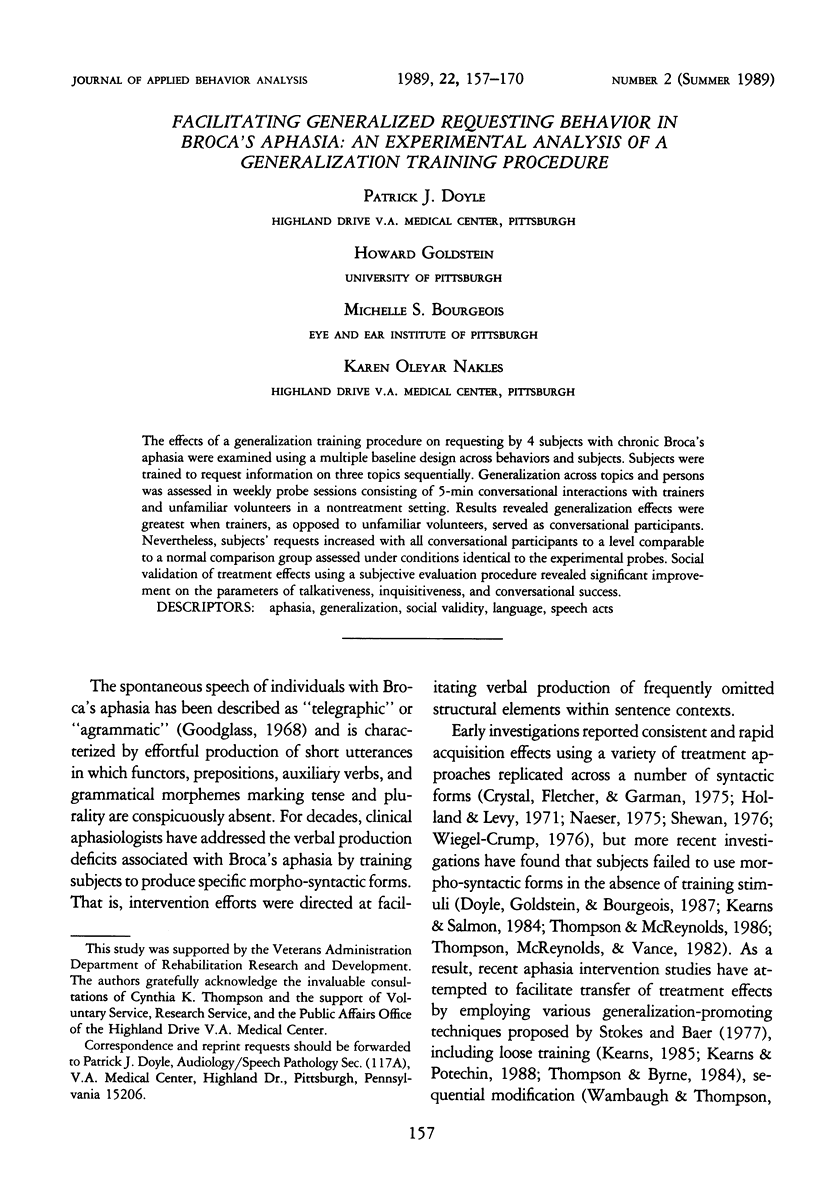
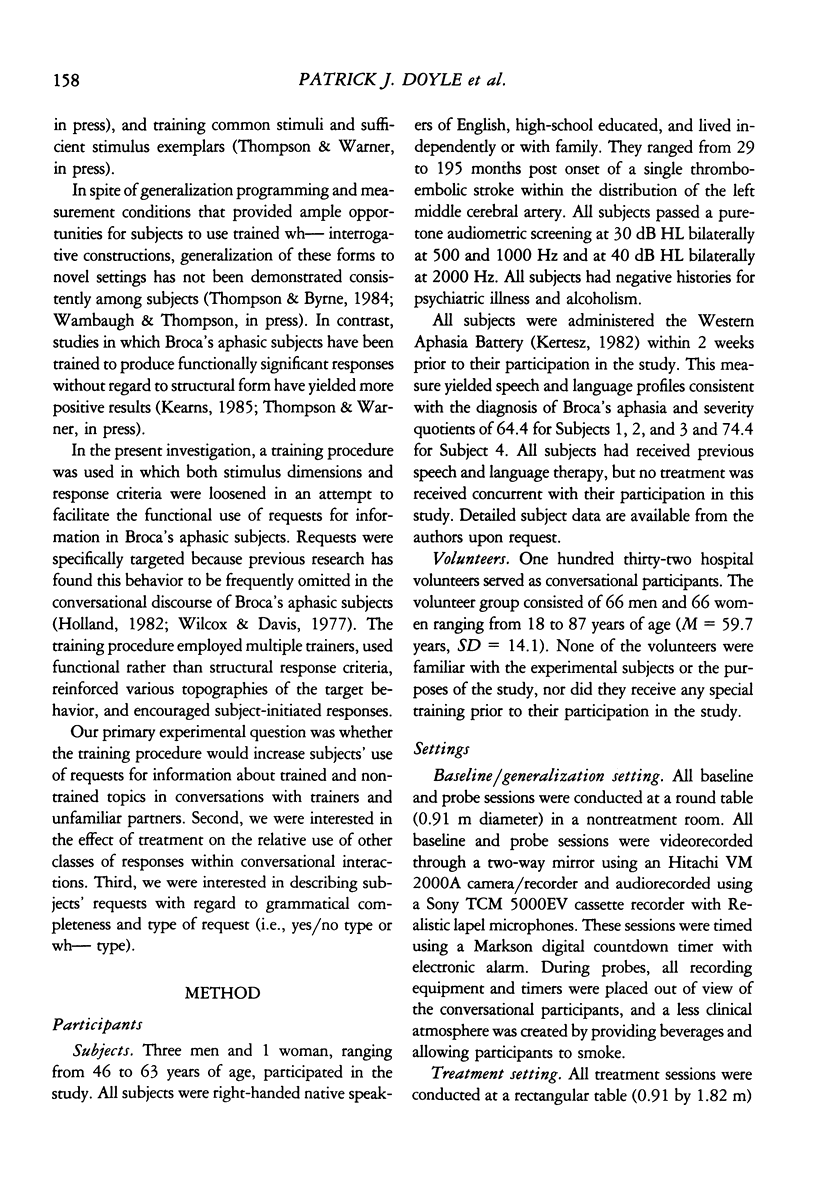
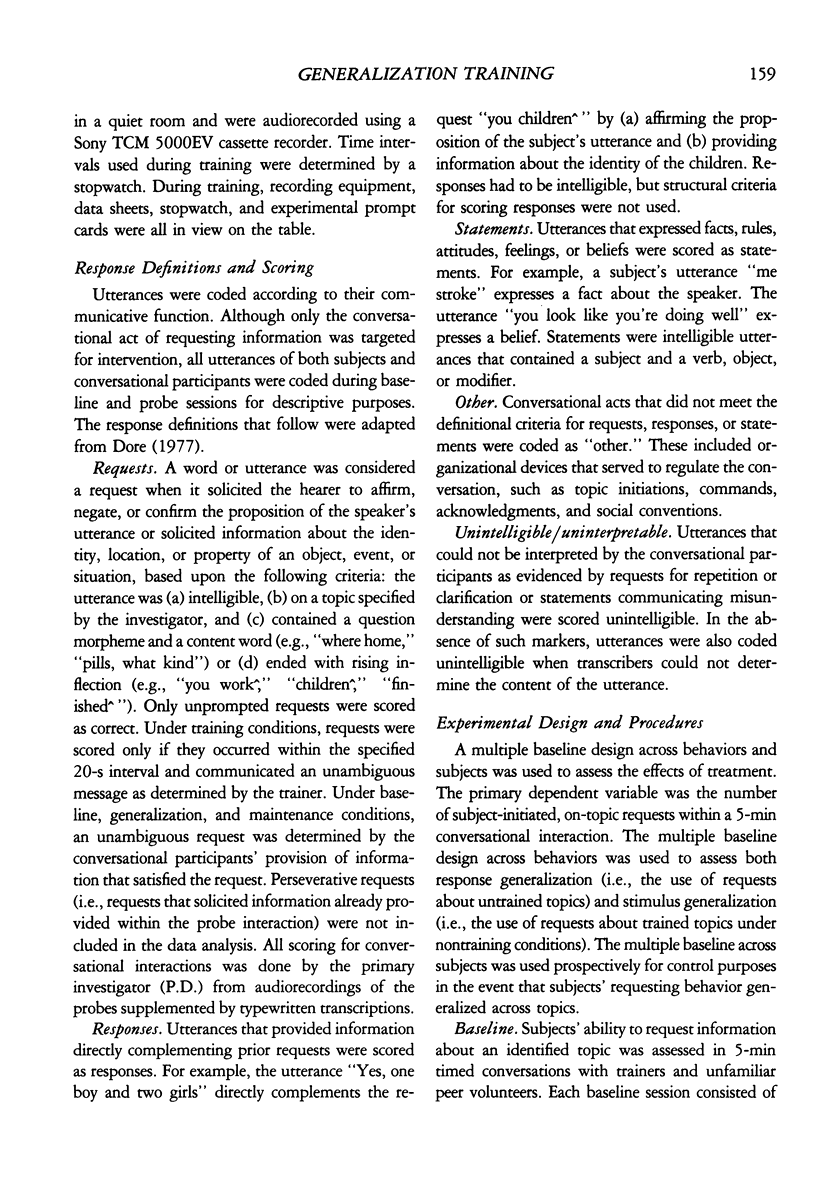
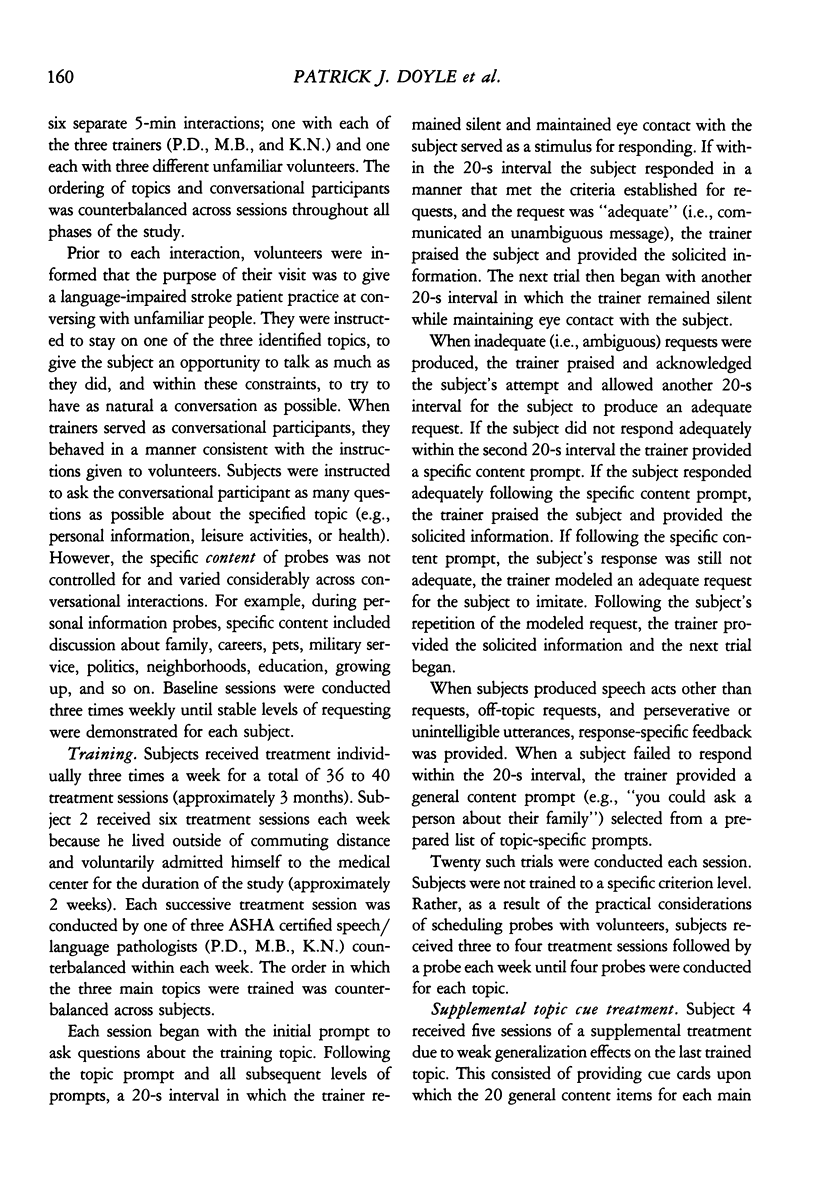
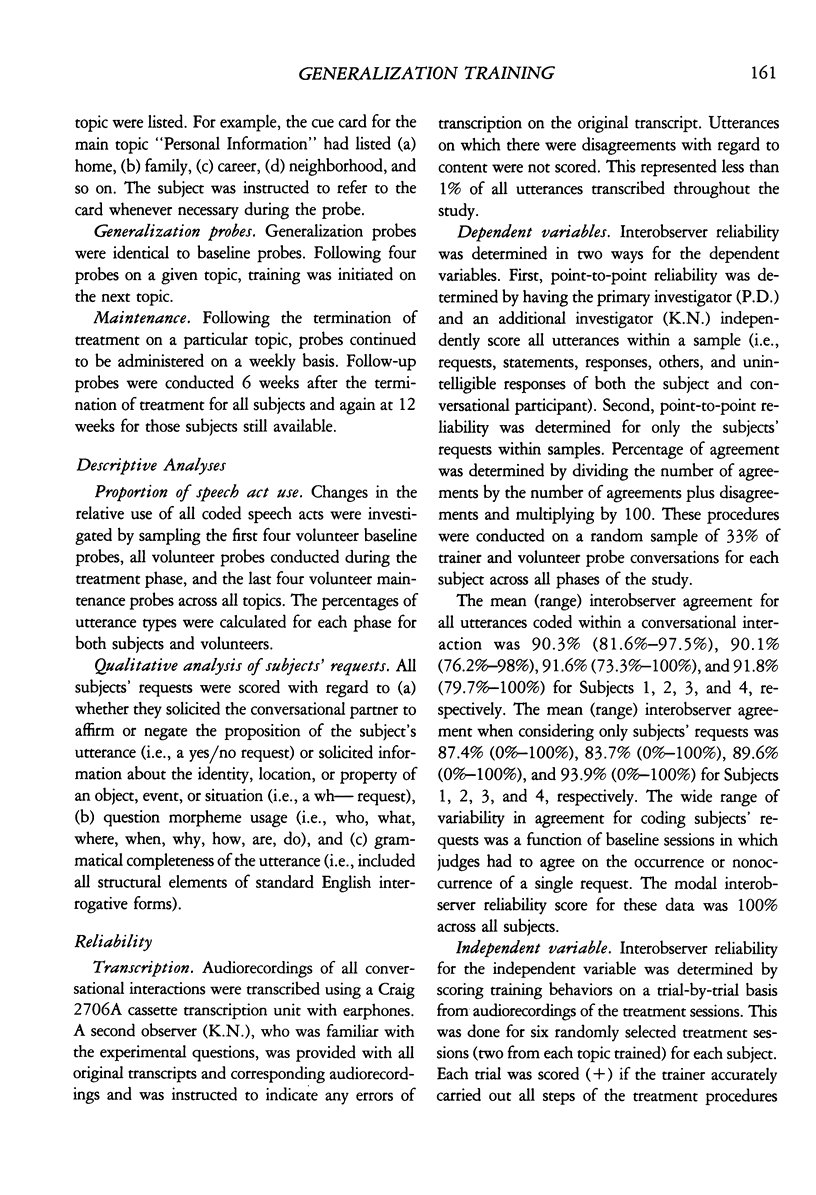
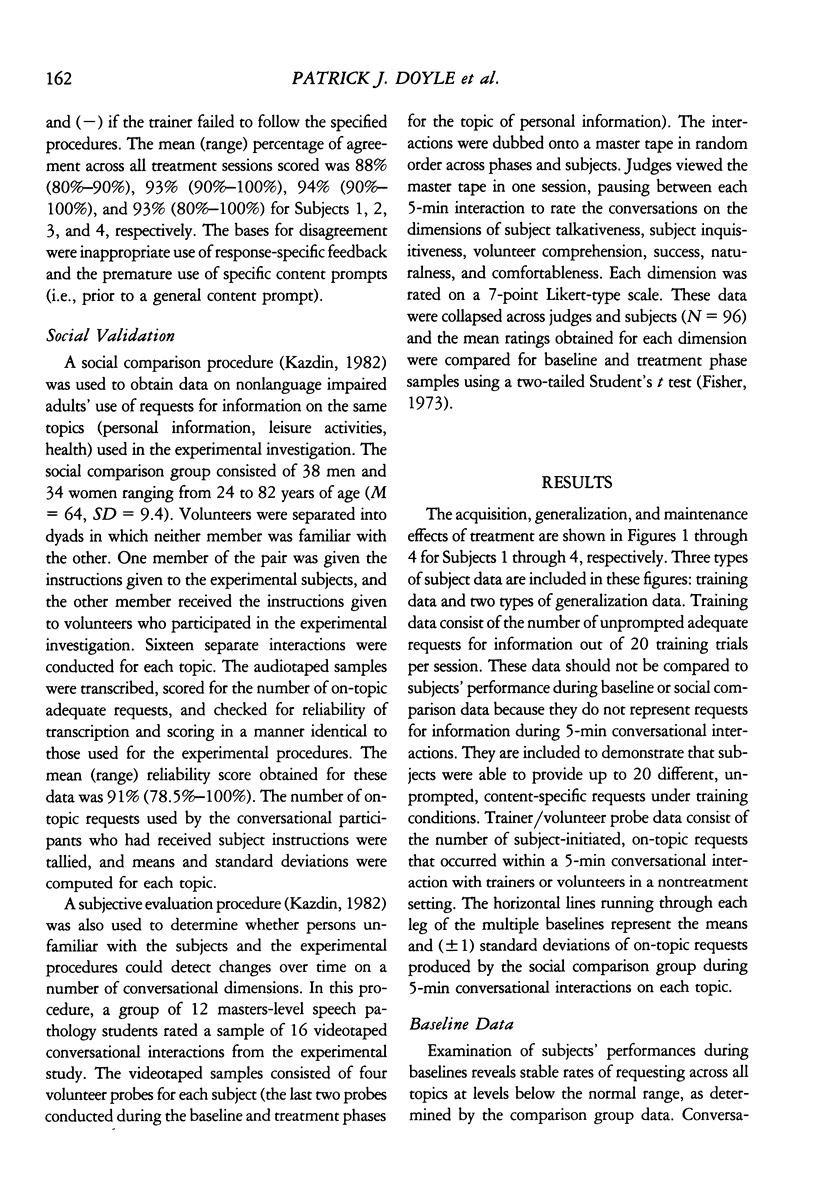
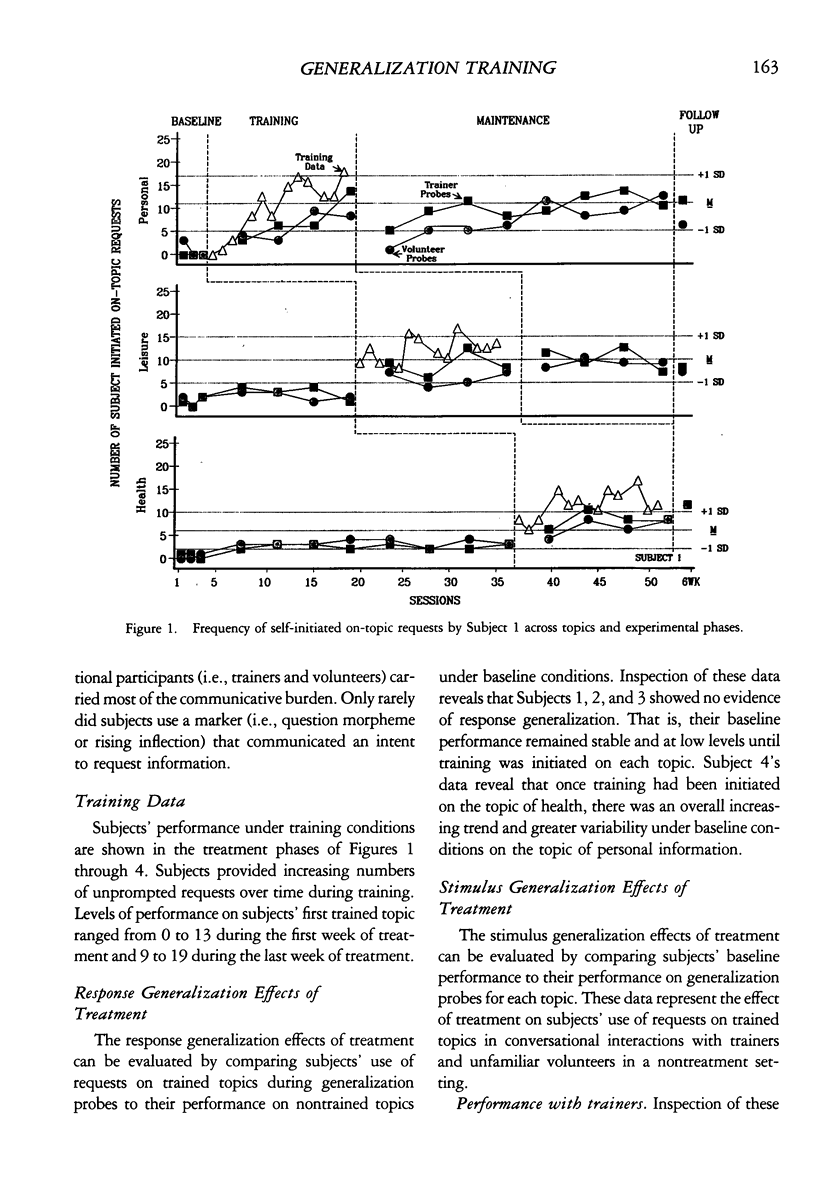
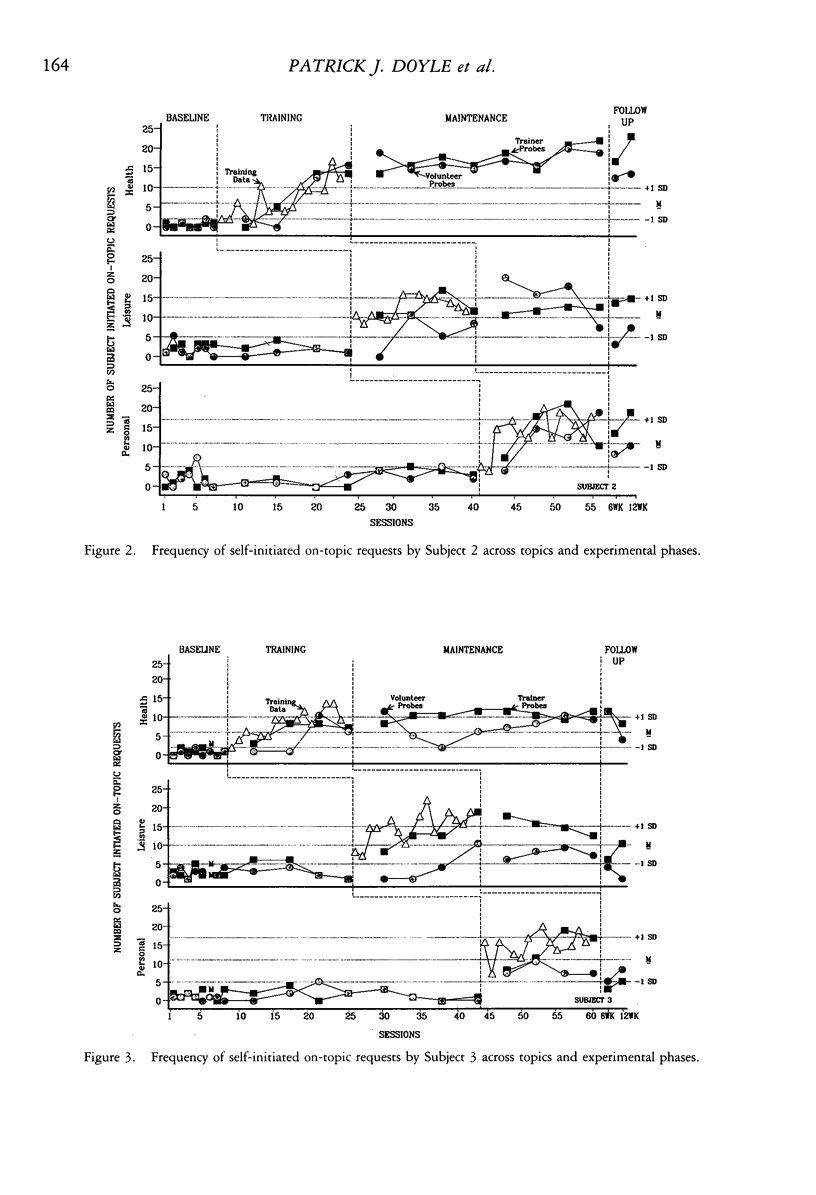
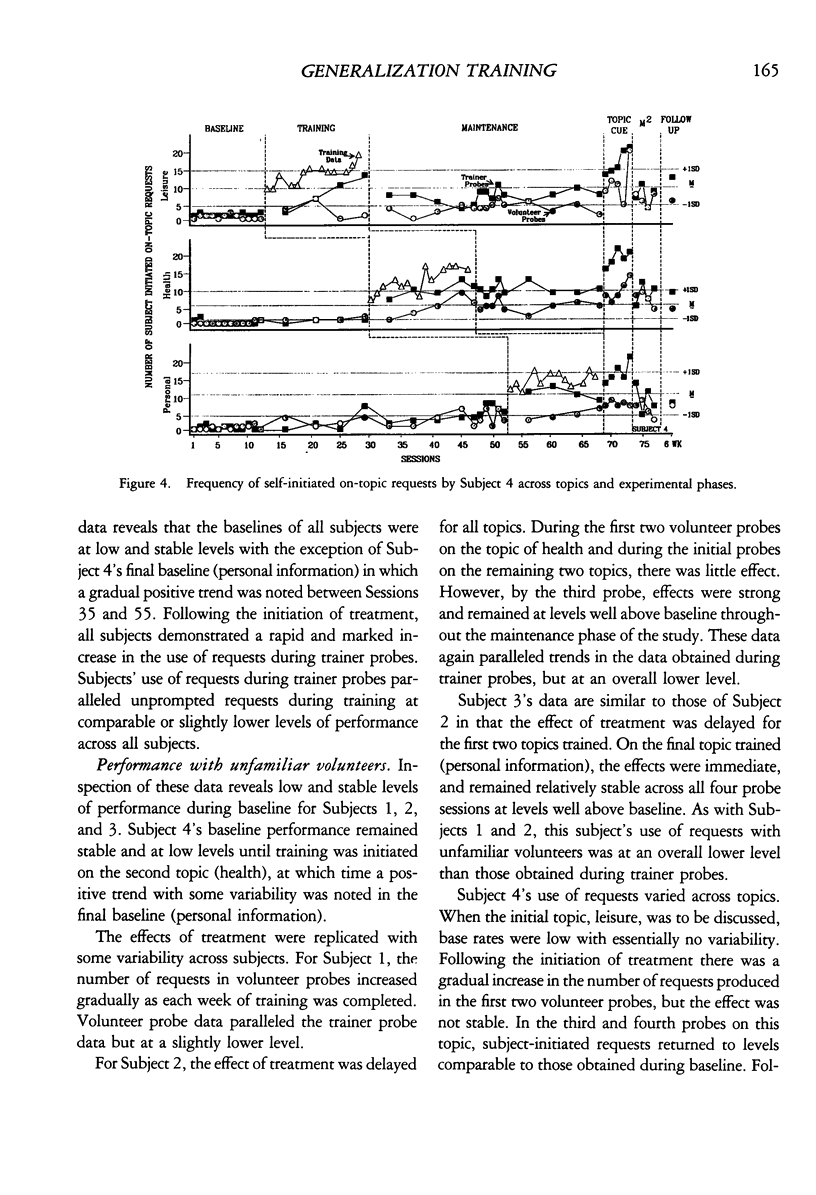
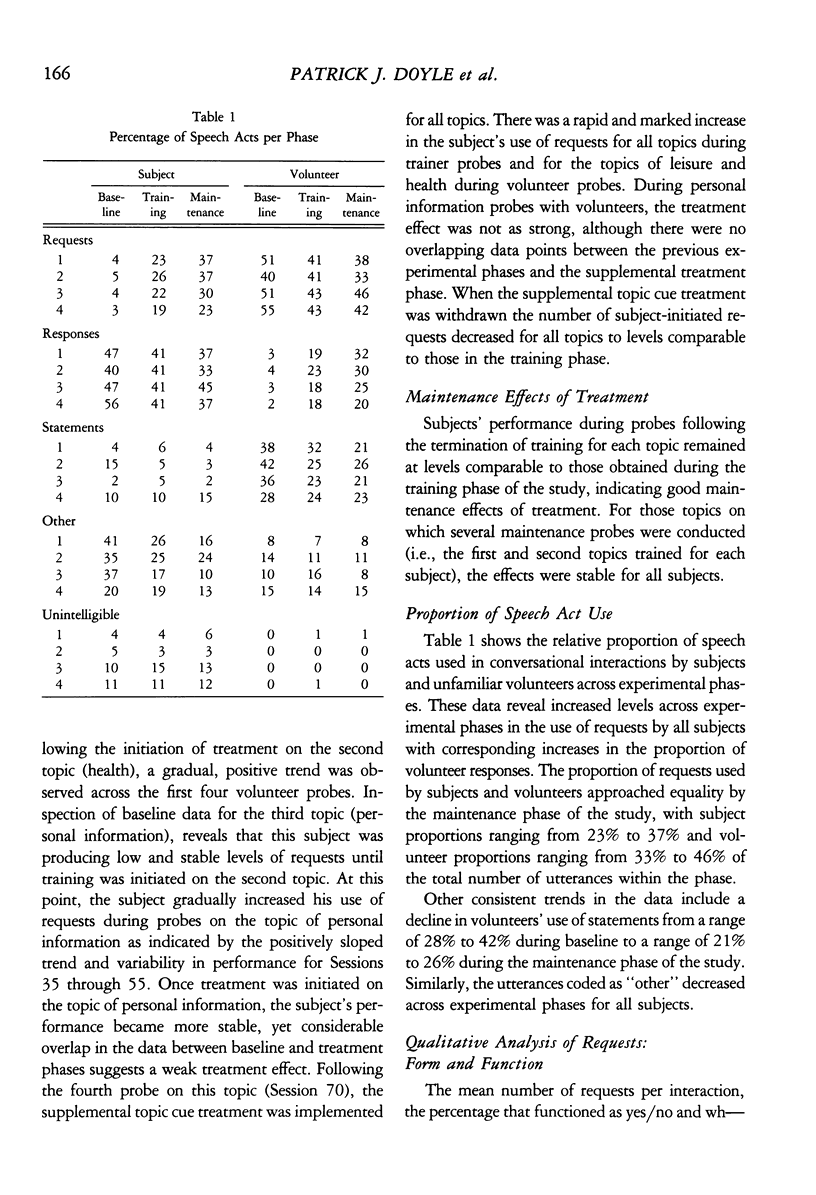
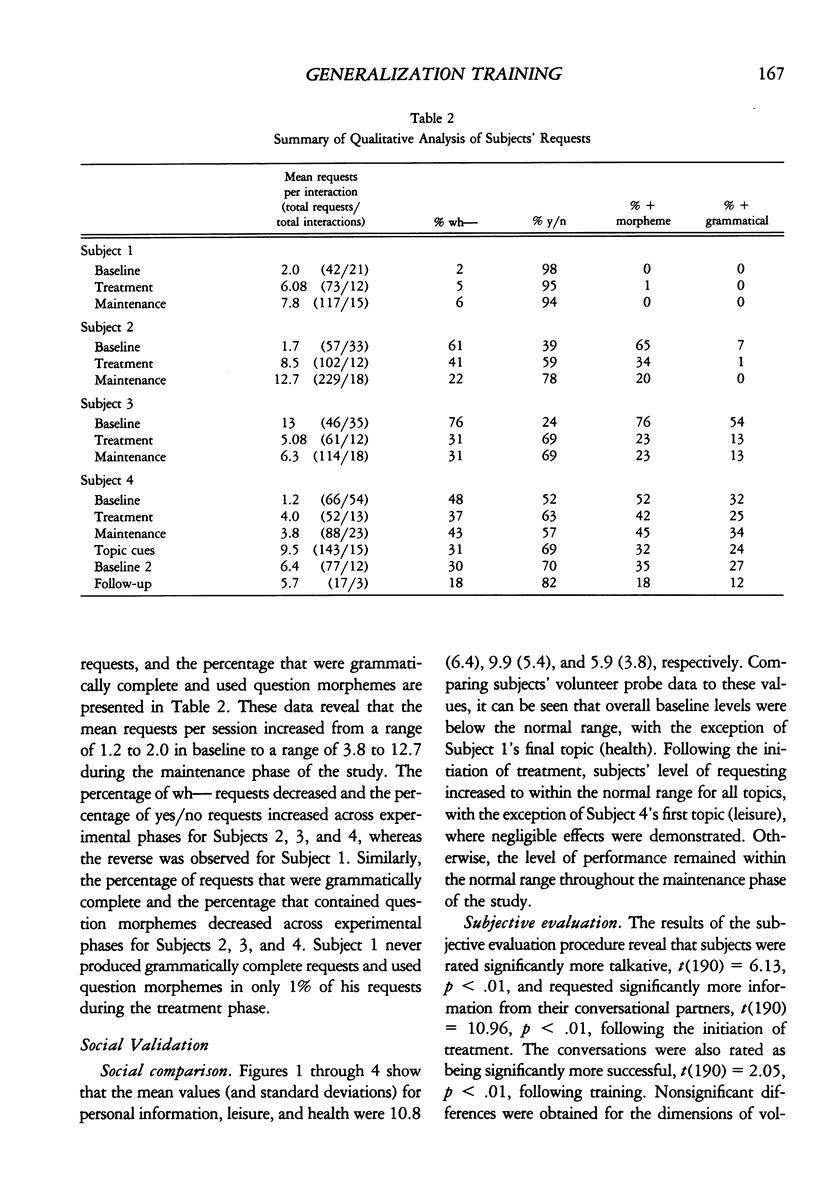
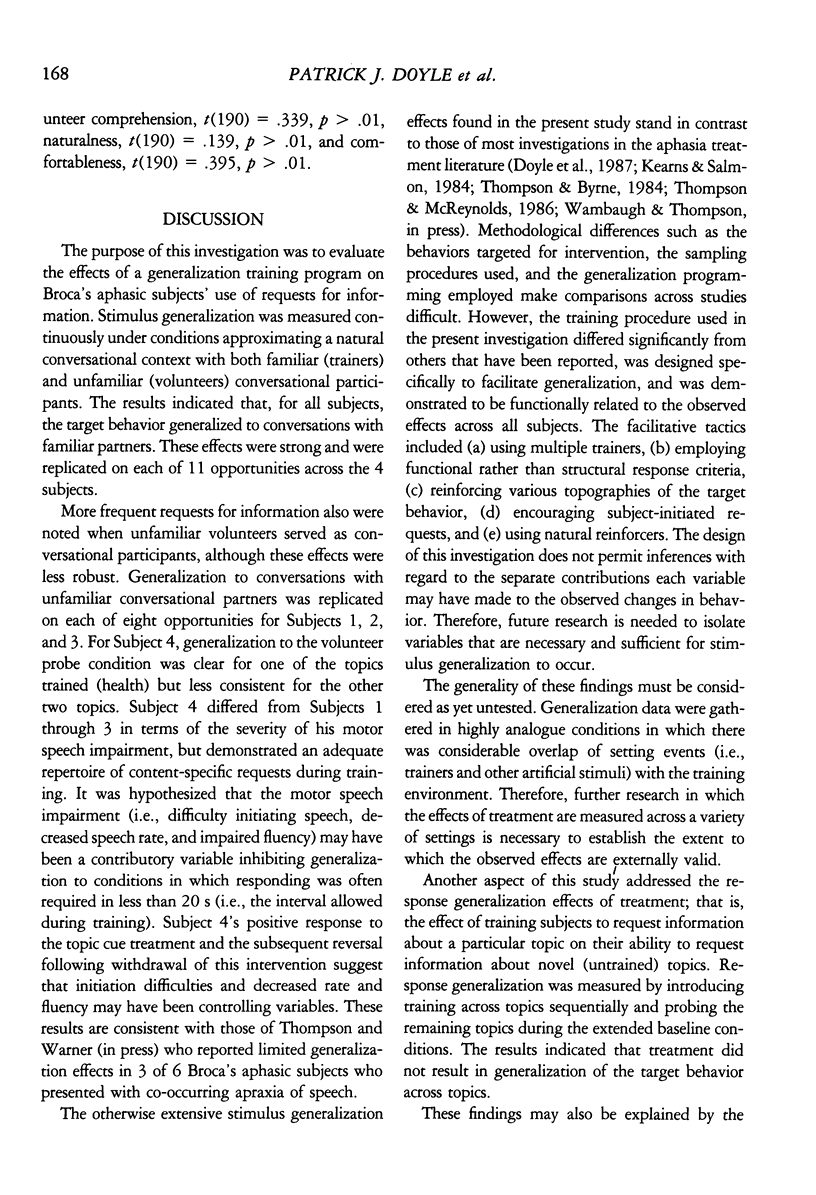
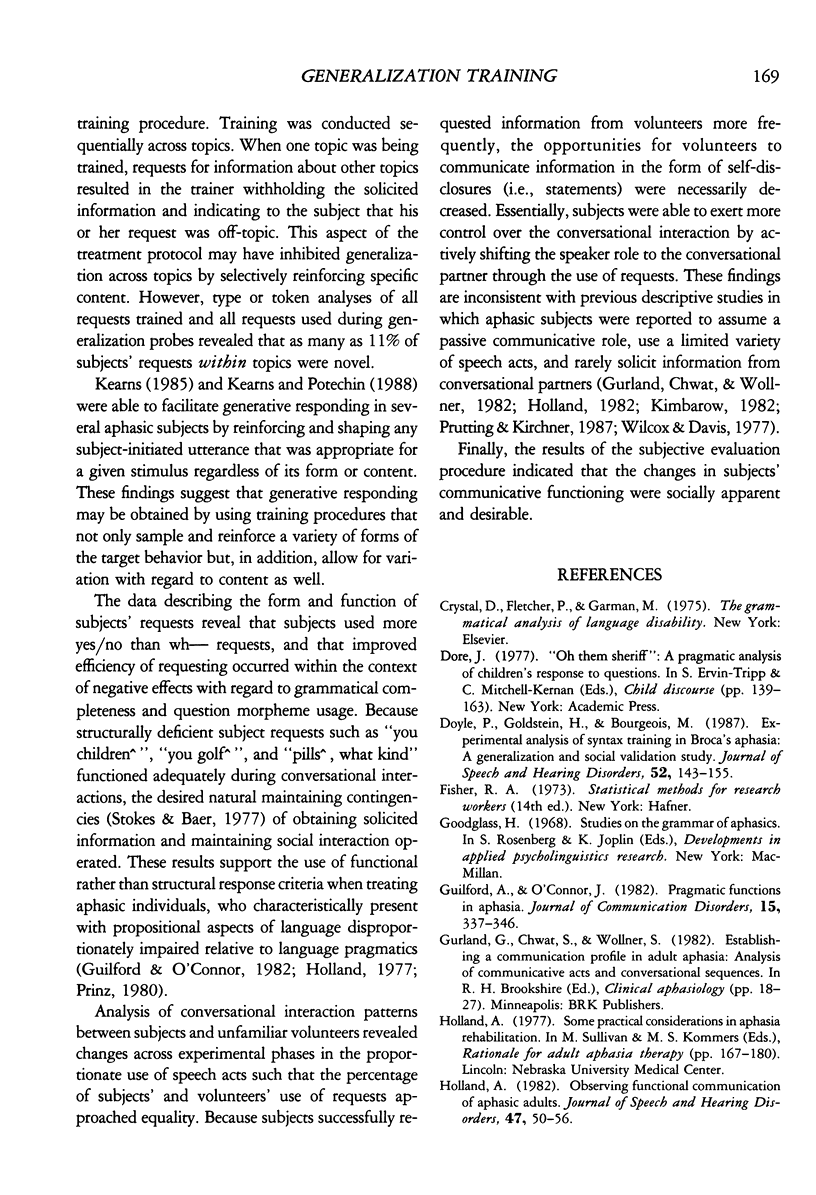
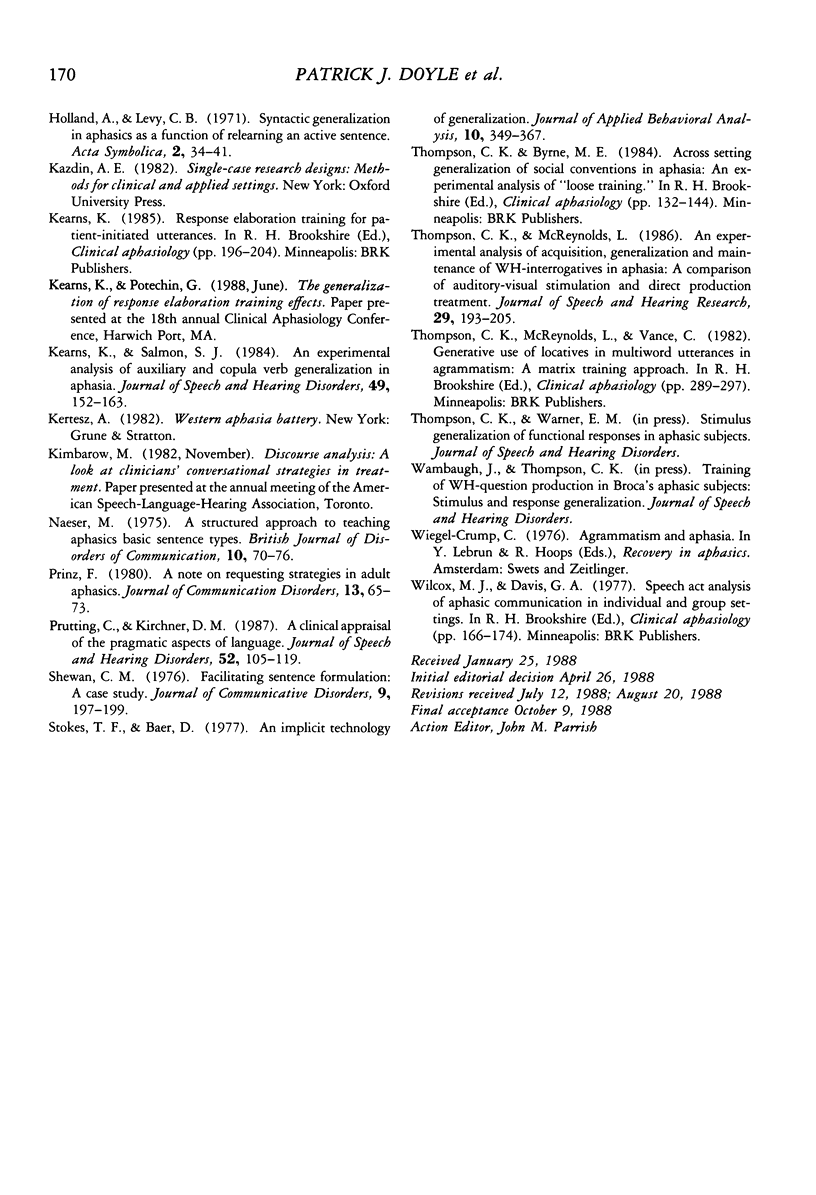
Images in this article
Selected References
These references are in PubMed. This may not be the complete list of references from this article.
- Doyle P. J., Goldstein H., Bourgeois M. S. Experimental analysis of syntax training in Broca's aphasia: a generalization and social validation study. J Speech Hear Disord. 1987 May;52(2):143–155. doi: 10.1044/jshd.5202.143. [DOI] [PubMed] [Google Scholar]
- Guilford A. M., O'Connor J. K. Pragmatic functions in aphasia. J Commun Disord. 1982 Sep;15(5):337–346. doi: 10.1016/0021-9924(82)90001-6. [DOI] [PubMed] [Google Scholar]
- Holland A. L. Observing functional communication of aphasic adults. J Speech Hear Disord. 1982 Feb;47(1):50–56. doi: 10.1044/jshd.4701.50. [DOI] [PubMed] [Google Scholar]
- Kearns K. P., Salmon S. J. An experimental analysis of auxiliary and copula verb generalization in aphasia. J Speech Hear Disord. 1984 May;49(2):152–163. doi: 10.1044/jshd.4902.152. [DOI] [PubMed] [Google Scholar]
- Mathur P. P., Smyth R. D., Herczeg T., Reavey-Cantwell N. H. Induction of hepatic enzymes by methaqualone and effect on warfarin-induced hypoprothrombinemia. J Pharmacol Exp Ther. 1976 Jan;196(1):204–212. [PubMed] [Google Scholar]
- Naeser M. A. A structured approach teaching aphasics basic sentence types. Br J Disord Commun. 1975 Apr;10(1):70–76. doi: 10.3109/13682827509011276. [DOI] [PubMed] [Google Scholar]
- Prinz P. M. A note on requesting strategies in adult aphasics. J Commun Disord. 1980 Jan;13(1):65–73. doi: 10.1016/0021-9924(80)90023-4. [DOI] [PubMed] [Google Scholar]
- Prutting C. A., Kirchner D. M. A clinical appraisal of the pragmatic aspects of language. J Speech Hear Disord. 1987 May;52(2):105–119. doi: 10.1044/jshd.5202.105. [DOI] [PubMed] [Google Scholar]
- Shewan C. M. Facilitating sentence formulation: a case study. J Commun Disord. 1976 Sep;9(3):191–197. doi: 10.1016/0021-9924(76)90010-1. [DOI] [PubMed] [Google Scholar]
- Stokes T. F., Baer D. M. An implicit technology of generalization. J Appl Behav Anal. 1977 Summer;10(2):349–367. doi: 10.1901/jaba.1977.10-349. [DOI] [PMC free article] [PubMed] [Google Scholar]
- Thompson C. K., McReynolds L. V. Wh interrogative production in agrammatic aphasia: an experimental analysis of auditory-visual stimulation and direct-production treatment. J Speech Hear Res. 1986 Jun;29(2):193–206. [PubMed] [Google Scholar]






